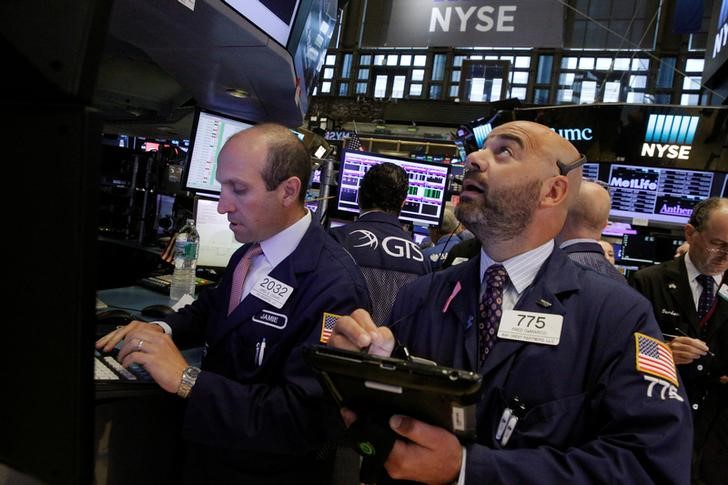By Claire Milhench
LONDON (Reuters) - Global investors have cut their cash holdings sharply and added to emerging market and U.S. stocks in August as global growth expectations have rebounded, a Bank of America Merrill Lynch (NYSE:BAC) (BAML) survey indicated on Tuesday.
Cash levels dropped to 5.4 percent from a 15-year high of 5.8 percent in July, the bank's monthly poll of fund managers showed, as risk appetite picked up.
A net 23 percent of investors now expect the global economy to improve over the next 12 months, an optimism reflected in the overall equity allocation recovering to a net overweight of 9 percent. This was up from a net 1 percent underweight last month - the first underweight in four years.
Among the biggest beneficiaries of this switch were emerging market stocks, where the allocation rose to a net 13 percent overweight - the highest level since September 2014. This was up from 10 percent last month.
Emerging market equities (MSCIEF) have rallied hard since January, and are up over 15 percent year-to-date.
BAML said central banks' creation of a low and stable rates environment was a big factor driving the optimism. Only 13 percent of respondents expect the negative interest rate policies pursued by the Bank of Japan or the European Central Bank to end within the next 12 months.
In addition, fewer managers are taking out protection against a sharp fall in equity markets in the next three months, suggesting they think the global rally has legs.
"Investors are less bearish, but sentiment has yet to shift from 'fear' to 'greed'. As such, we expect stock prices to rise further until bonds throw another tantrum," said Michael Hartnett, chief investment strategist at BAML.
The allocation to U.S. equities swelled to its highest since January 2015, at a net 11 percent overweight, but the allocation to euro zone stocks remained low at a net 1 percent overweight.
The UK equity allocation improved slightly to a net 21 percent underweight from 27 percent underweight last month. Investors had cut their UK exposure sharply after Britain's shock vote to leave the European Union.
The outcome of the referendum wiped billions off share prices, pushed sterling to a 31-year low against the dollar and raised fears of a recession in Britain.
Perhaps concerned that the Brexit vote had set a precedent for other EU members, 22 percent of poll respondents said EU disintegration was now the biggest tail risk haunting global financial markets.
This was followed by renewed Chinese devaluation, chosen by 18 percent, and U.S. inflation, picked by 16 percent.

A total of 173 participants with some $518 billion under management responded to the poll, which was carried out between August 5-11.